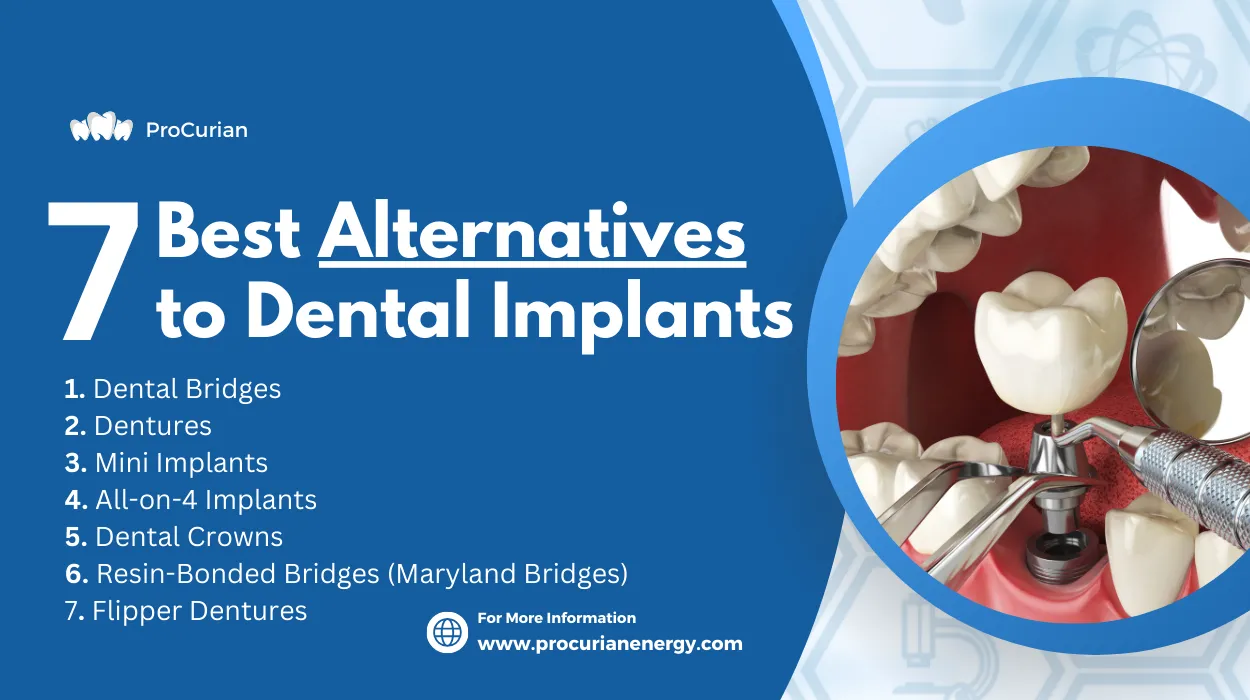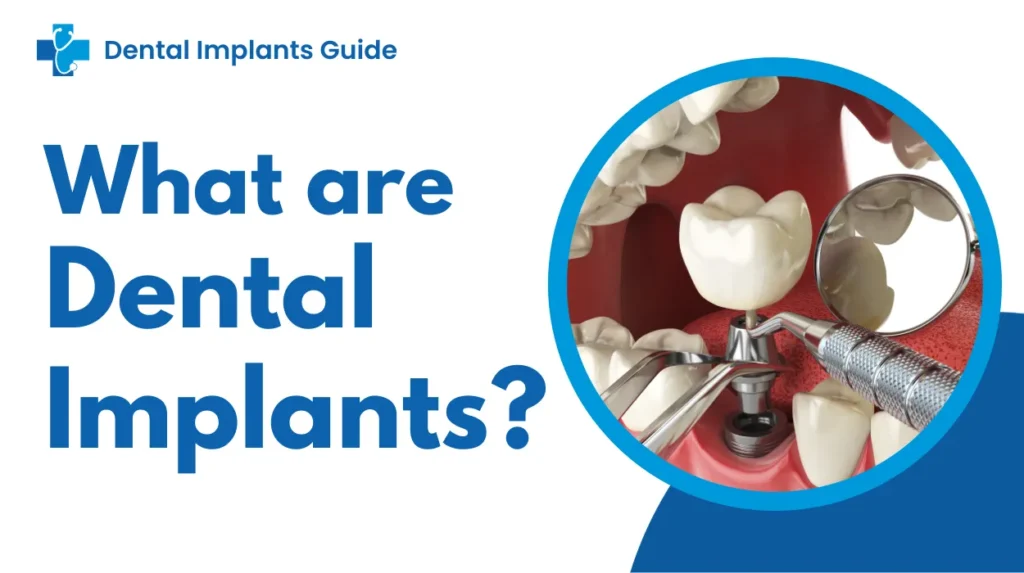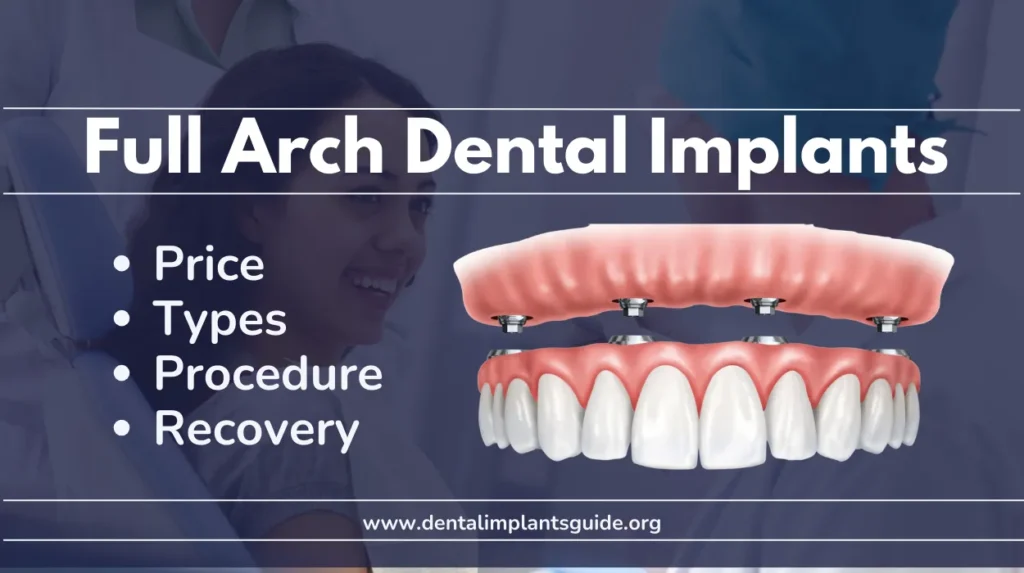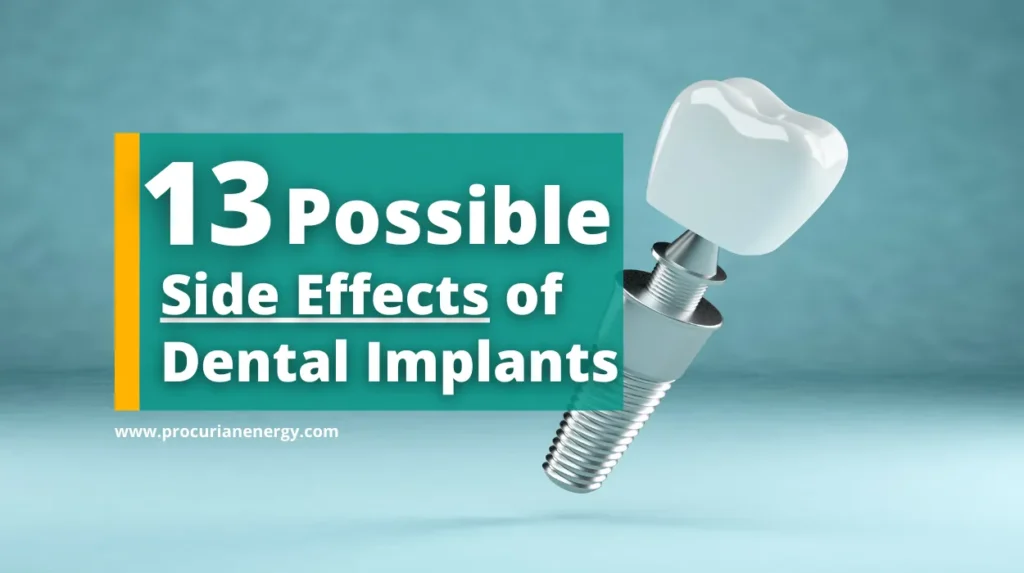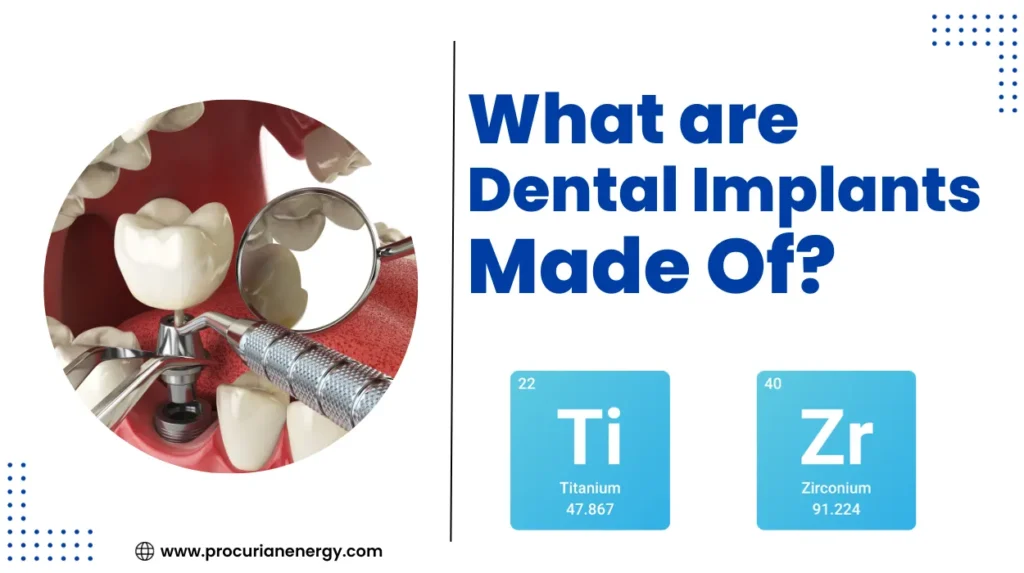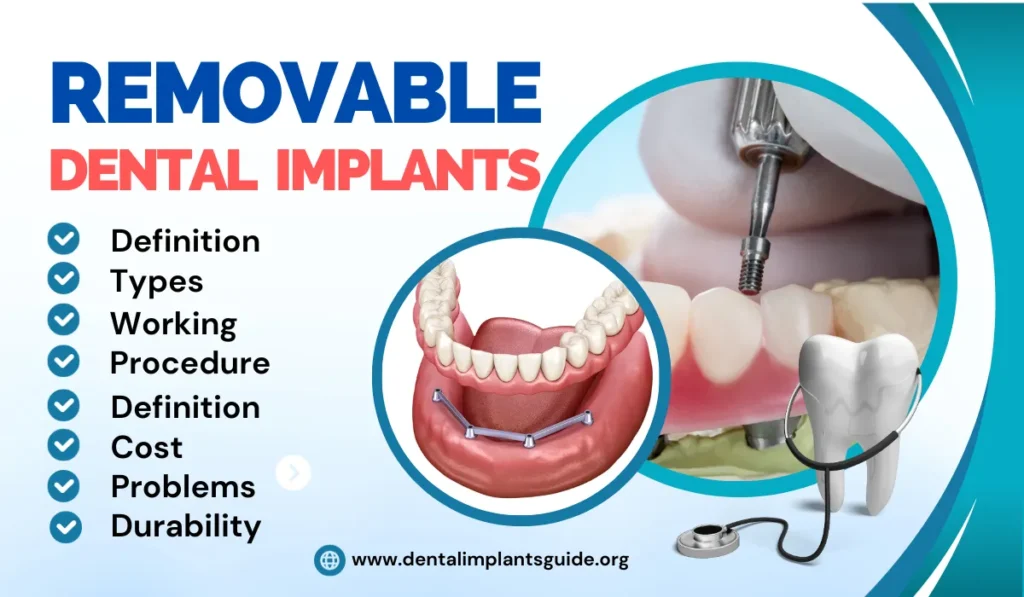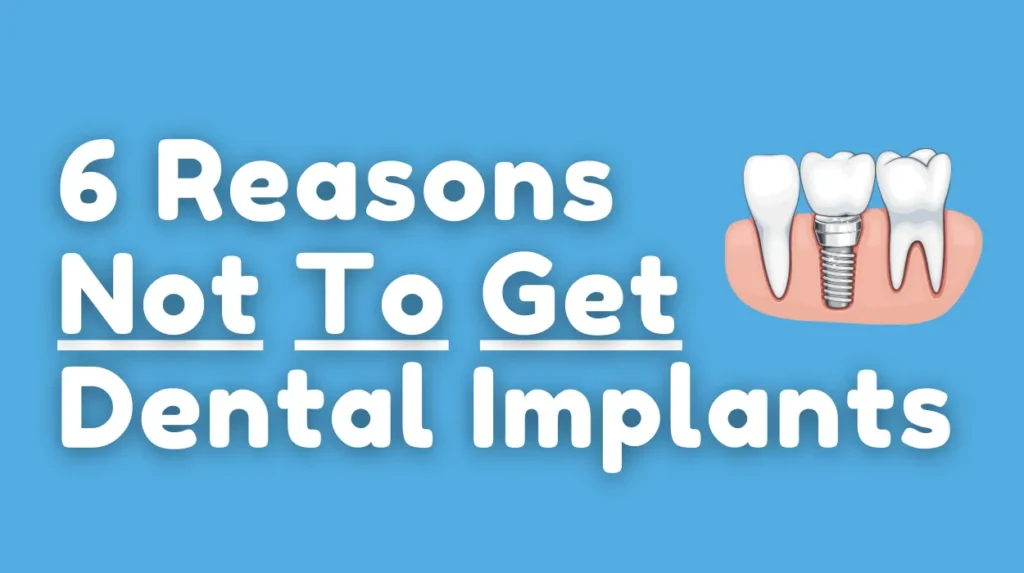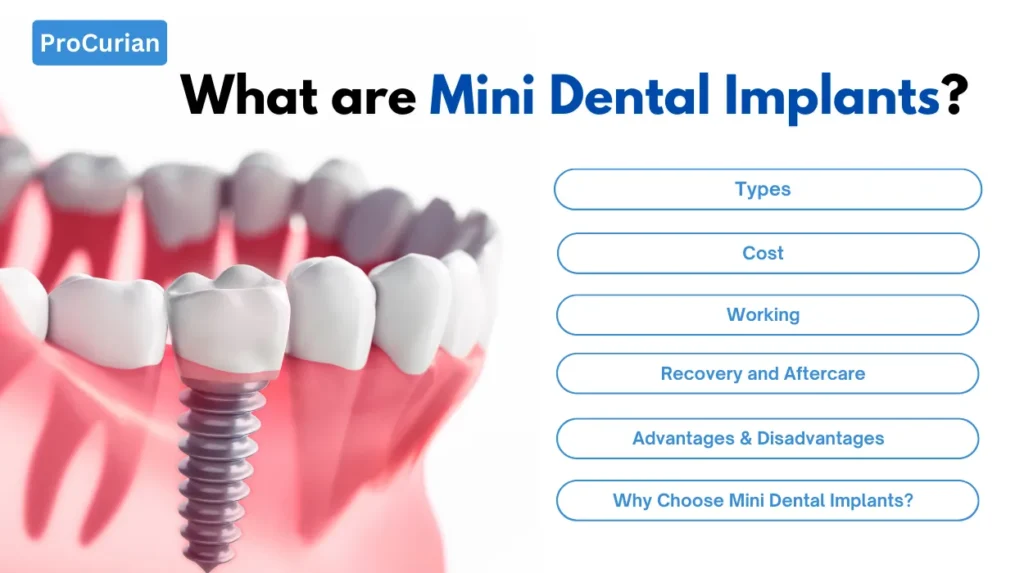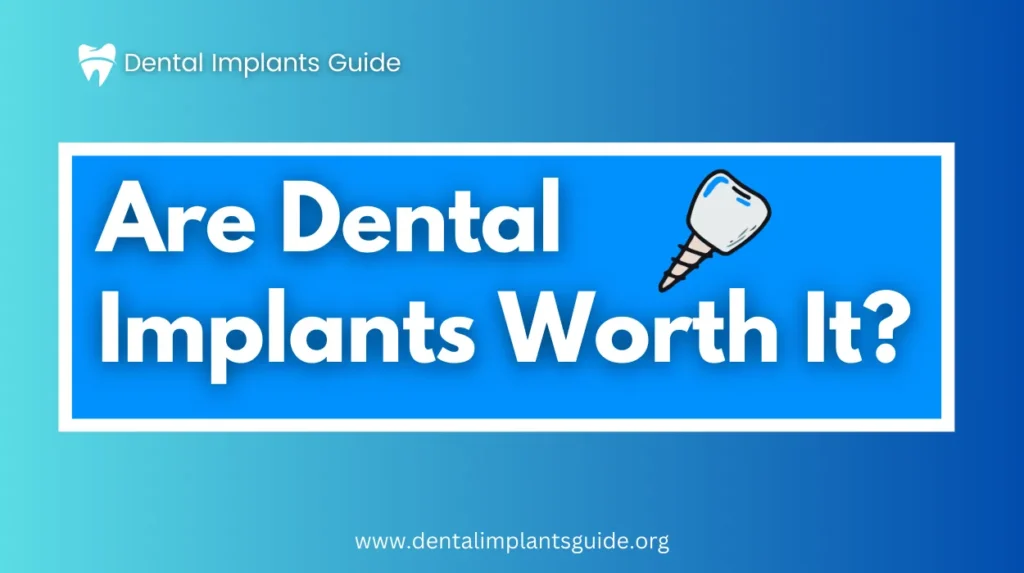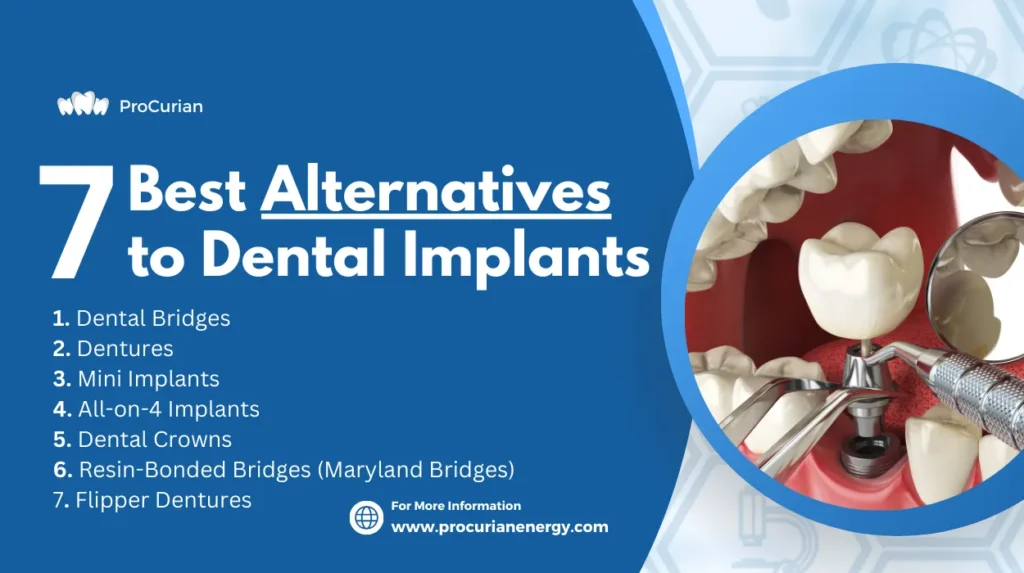
Dental implants have long been a well-liked option for restoring your smile and oral health. Dental implants are not right for everyone, and some people might prefer other solutions.
You’ve come to the right place if you’ve been thinking about getting dental implants but want to explore your other options. By the end of this article, you’ll have a clearer understanding of which option might be the right fit for you.
Dental implants are artificial tooth roots made of titanium that are surgically placed into the jawbone to hold a replacement tooth or bridge. They are a popular choice for tooth replacement due to their durability and natural appearance.
Why Consider Alternatives?
While dental implants have their advantages, they may not be suitable for everyone.There are several reasons why you might want to explore alternatives to dental implants:
- Cost – Dental implants can be expensive, and not everyone can afford them.
- Health Conditions – Some medical conditions or medications may affect your ability to get implants.
- Time – The implant process can be lengthy, involving multiple visits over several months.
- Bone Health – Insufficient jawbone density can make it challenging to support implants.
7 Best Alternatives to Dental Implants
1. Dental Bridges
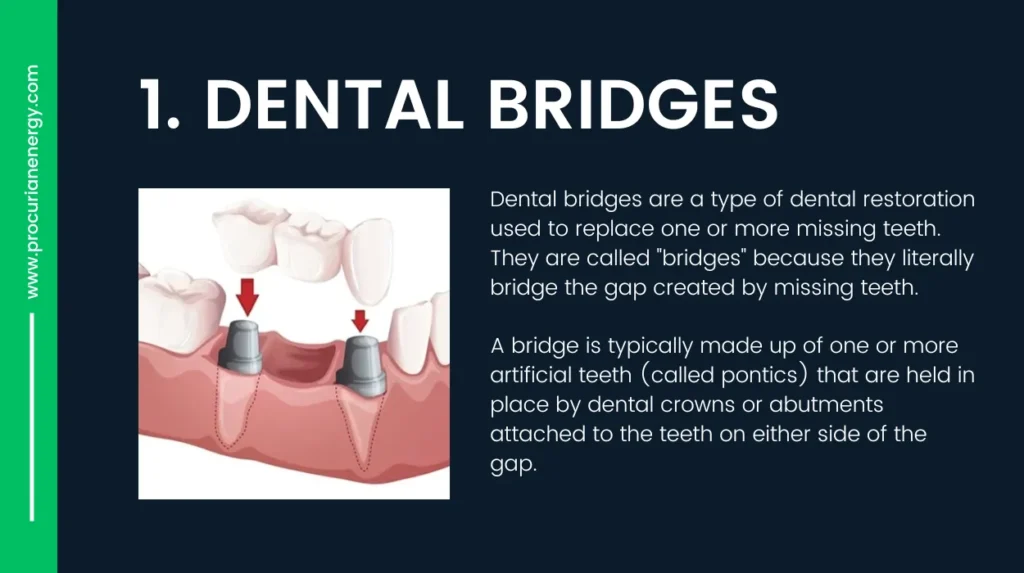
One of the most common alternatives to dental implants is a dental bridge. A dental bridge is like a highway that spans the gap left by a missing tooth. Here’s how it works:
How do Dental Bridges work?
A dental bridge consists of two crowns placed on the teeth on either side of the gap (abutment teeth) and a false tooth (pontic) in between. The crowns serve as anchors, holding the pontic in place.
Cost: $2,000 – $5,000
Pros:
- Cost-effective compared to implants.
- Shorter treatment time.
- Suitable for people with weaker jawbones.
Cons:
- Requires altering adjacent healthy teeth.
- May need replacement over time.
- Not suitable for extensive tooth loss.
2. Dentures
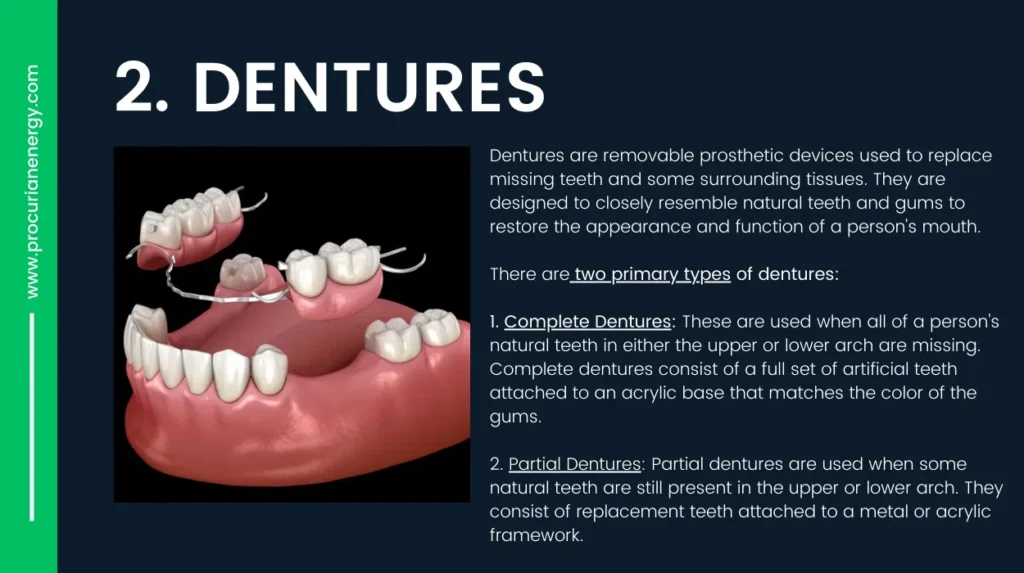
Dentures have been a trusted tooth replacement option for generations. They are removable appliances that can replace one or multiple missing teeth. Here’s a closer look:
How do dentures work?
Dentures are custom-made to fit your mouth and are supported by your gums and jawbone. They can be partial (replacing a few teeth) or full (replacing all teeth).
Cost: $1,000 – $3,000
Pros:
- Cost-effective.
- Non-invasive.
- Suitable for extensive tooth loss.
- Can be removed for cleaning.
Cons:
- May feel less natural than implants.
- May require adjustments and replacements over time.
- Adhesive may be needed for stability.
3. Mini Implants
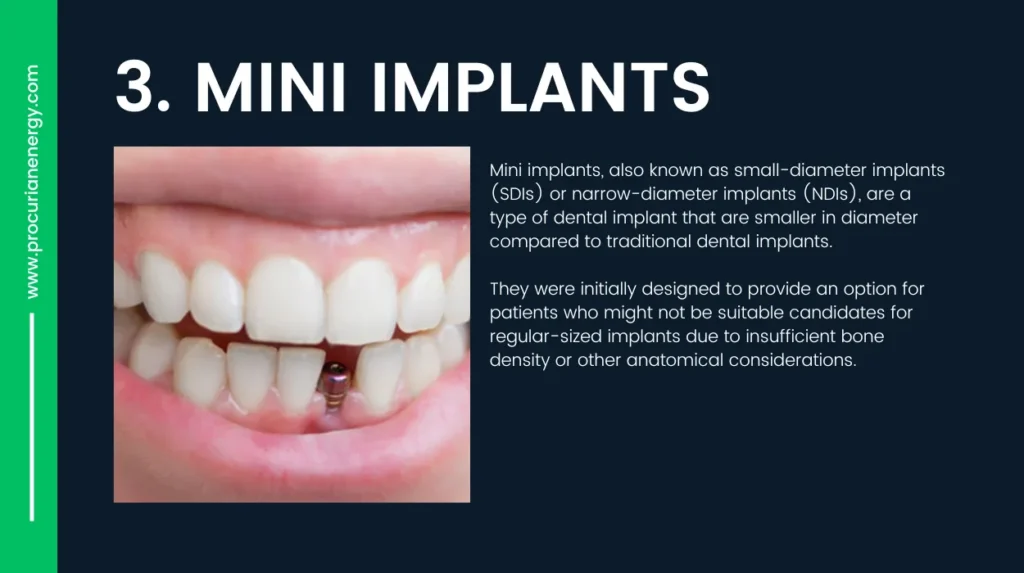
If you’re not entirely against dental implants but are concerned about the invasiveness of the procedure, you might consider mini dental implants. These are smaller than traditional implants and require less bone density.
How do Mini Implants work?
Mini implants are narrower than standard implants and are often used to stabilize dentures or replace small teeth.
Cost: $500 – $1,500
Pros:
- Less invasive than standard implants.
- Faster healing time.
- Suitable for patients with thin jawbones.
Cons:
- May not be as stable as standard implants.
- Limited use for larger teeth.
- Potential for long-term maintenance.
4. All-on-4 Implants
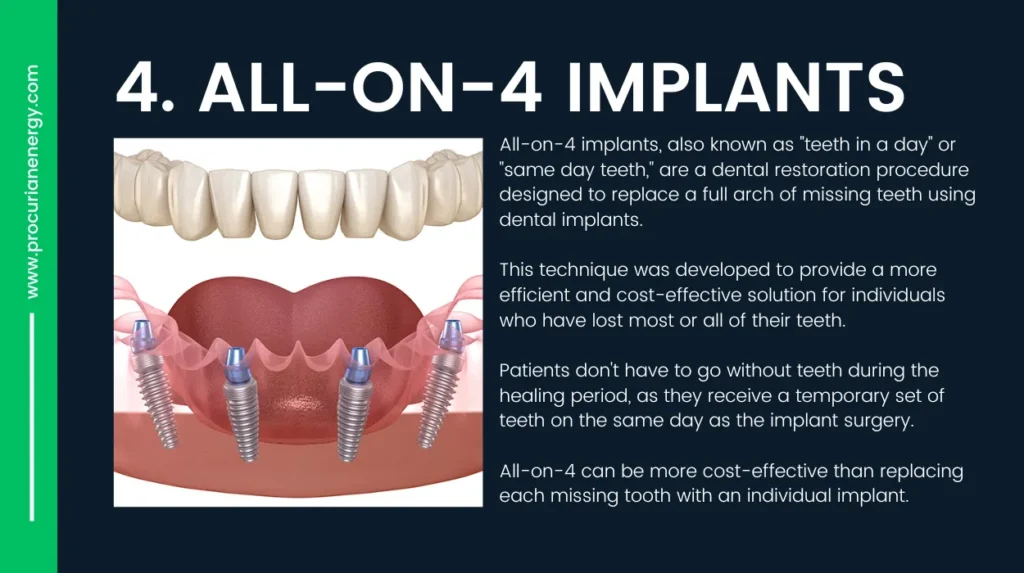
The All-on-4 implant technique is a hybrid option that provides the benefits of dental implants while minimizing the number of implants required. It involves the placement of four implants to support a full arch of teeth.
How do All-on-4 Implants work?
The All-on-4 implant system is designed to support a full arch of teeth (either upper or lower) with just four strategically placed dental implants.
Cost: $30,000 – $40,000
Pros:
- Fewer implants needed.
- Faster treatment compared to individual implants.
- Suitable for patients with some bone loss.
Cons:
- May require more maintenance than traditional implants.
- Initial cost may still be high.
5. Dental Crowns
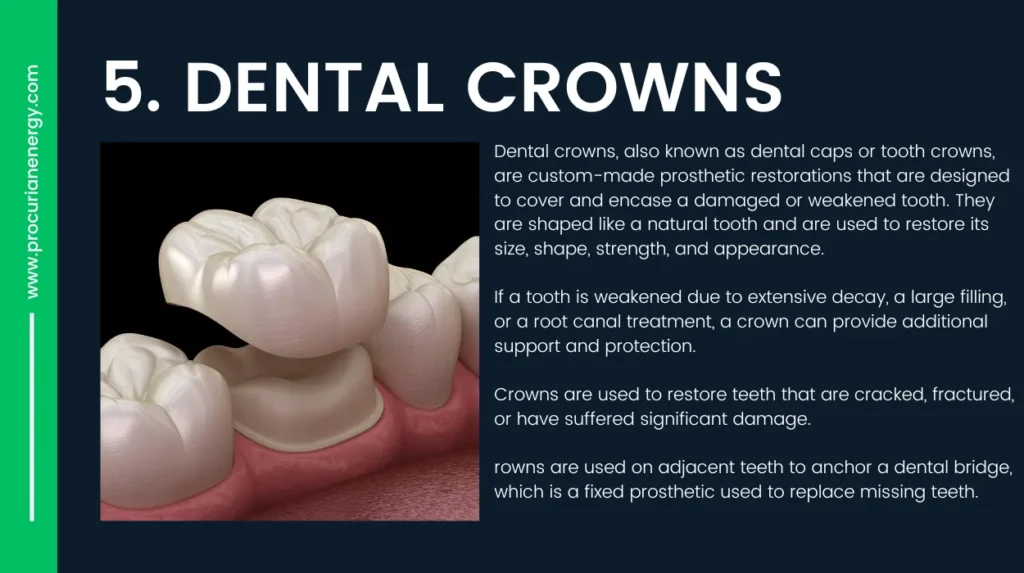
Dental crowns are individual tooth-shaped caps that are placed over damaged or decayed teeth. While they are primarily used for restoring damaged teeth, they can also be used as part of a bridge to replace missing teeth.
How do Dental Crownswork?
A dental crown is a cap that covers a damaged or weakened tooth. In cases where a tooth is missing, a crown can be placed on the tooth next to the gap to fill it.
Cost: $1,000 – $1,500
Pros:
- Preserves existing tooth structure.
- Aesthetic and functional restoration.
- Can be part of a bridge for tooth replacement.
Cons:
- Limited to cases where adjacent teeth are suitable for support.
- Does not address extensive tooth loss on its own.
6. Resin-Bonded Bridges (Maryland Bridges)
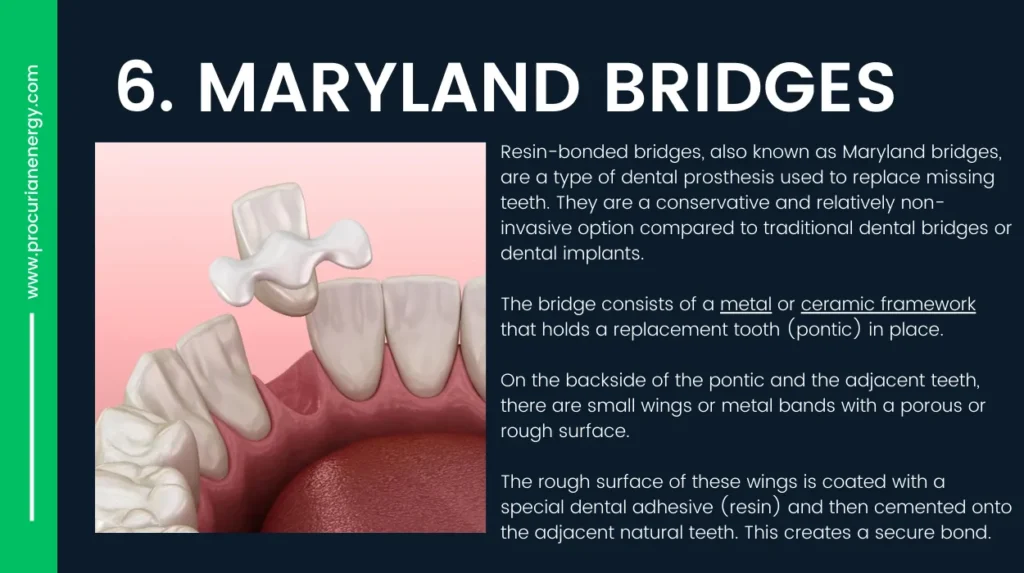
Resin-bonded bridges, also known as Maryland bridges, are a conservative option for replacing a missing tooth. These bridges consist of a replacement tooth with wings or metal framework that is bonded to the adjacent natural teeth.
How do Maryland Bridges work?
A Maryland bridge consists of a false tooth with wings or metal bands attached to the back of adjacent teeth, eliminating the need for full crowns on these teeth.
Cost: $1,500 – $2,000
Pros:
- Minimally invasive as it doesn’t require extensive tooth alteration.
- Suitable for replacing a single missing tooth.
- Quick and cost-effective.
Cons:
- May not be as sturdy as traditional bridges.
- Limited to specific cases where adjacent teeth are healthy and strong.
7. Flipper Dentures
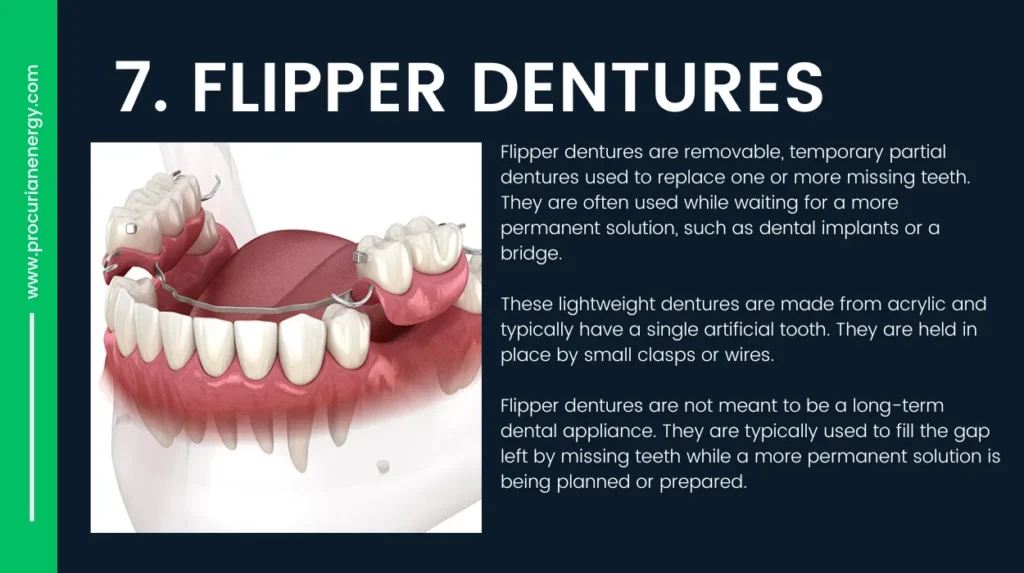
Flipper dentures are removable, temporary partial dentures used to replace one or more missing teeth. They are often used while waiting for a more permanent solution, such as dental implants or a bridge.
How do Flipper Dentures work?
These lightweight dentures are made from acrylic and typically have a single artificial tooth. They are held in place by small clasps or wires.
Cost: $300 – $500
Pros:
- Non-invasive and cost-effective temporary solution.
- Quick to create and adjust.
- Provides immediate tooth replacement.
Cons:
- Less stable compared to permanent solutions.
- Requires removal for cleaning and sleeping.
- Not suitable for long-term use.
Who is not suitable for dental implants?
Not everyone is a good fit for dental implants. Here are some reasons why dental implants might not be suitable for some people:
- If a person doesn’t have enough bone in their jaw to support the implant, it might not work. Healthy bone is crucial to anchor the implant securely.
- Dental implants are typically recommended for adults whose jawbones have fully developed. Younger people may not be suitable candidates.
- Certain medical conditions like uncontrolled diabetes, cancer treatments, or immune disorders can affect the healing process after implant surgery.
- Smoking can slow down the healing process and increase the risk of implant failure.
- Active gum disease can harm the tissues around the implant, making it less likely to succeed.
- People who struggle with maintaining good oral hygiene may have a higher risk of implant complications.
- Pregnancy can lead to hormonal changes that might affect the success of dental implants. It’s often recommended to wait until after pregnancy for the procedure.
How long can you go with a missing tooth?
If you have a missing tooth, it’s essential to know that you shouldn’t leave it that way for too long.
Missing teeth can cause problems. Your teeth can shift, making it harder to chew, and it might not look nice when you smile.
FAQs
What are the cheaper alternatives to dental implants?
Do these alternatives look and feel natural?
Final Words
Dental implants are not the only option when it comes to replacing missing teeth. Dental bridges, dentures, mini implants, and All-on-4 implants offer viable alternatives depending on your specific needs and circumstances.
Your choice ought to be guided by your particular requirements, financial situation, and degree of comfort.
Remember that maintaining good oral hygiene and regular dental check-ups are crucial, regardless of the replacement option you choose.
